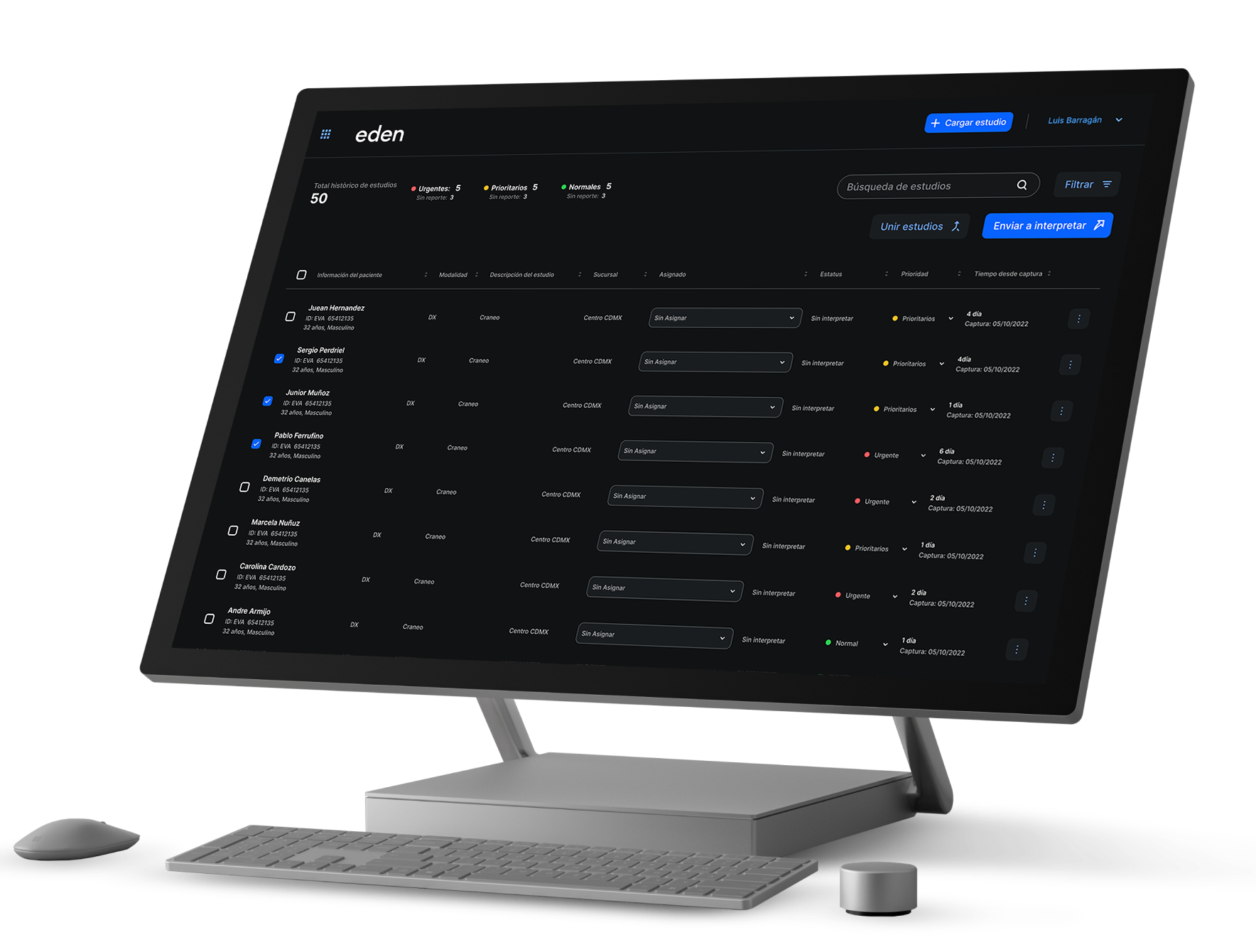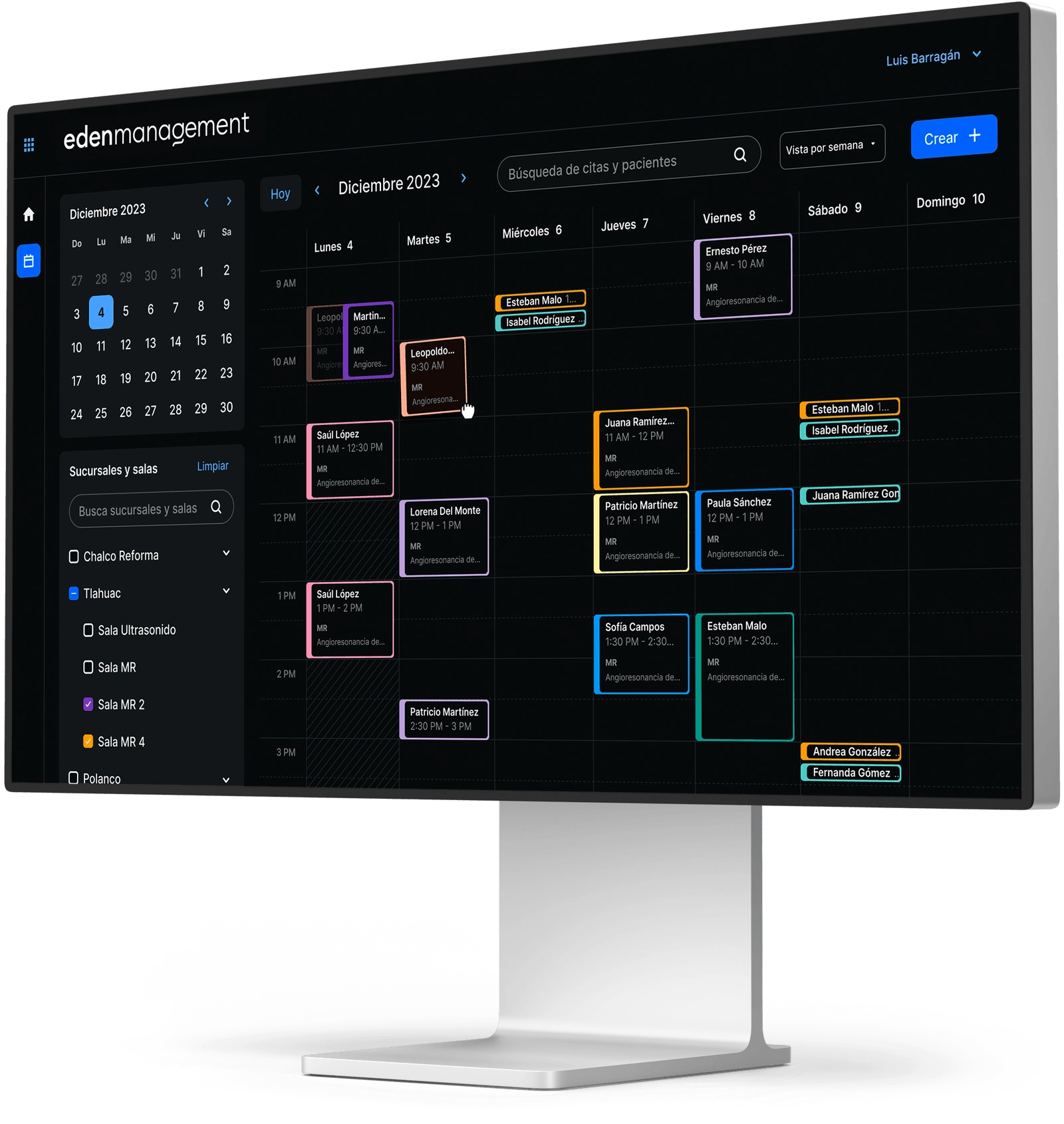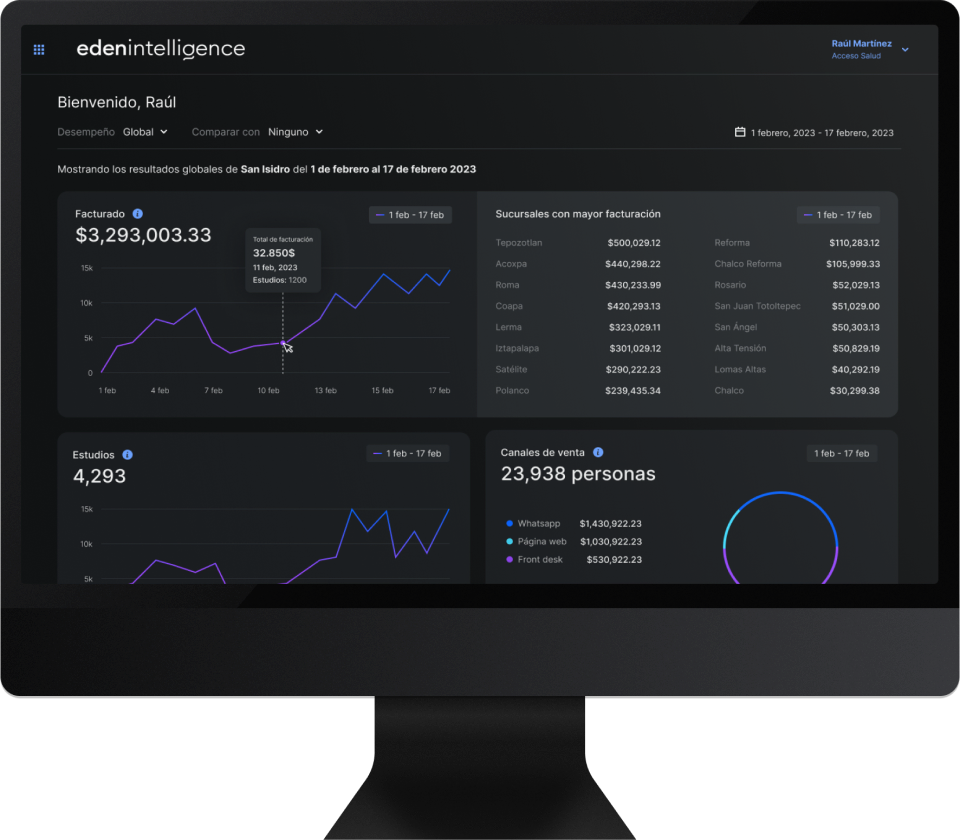We live in the era of digital transformation, in which technology revolutionizes many sectors, including healthcare. Digital medicine and AI are two of the most important tools driving this transformation. We will explore its definition, its benefits, some statistics about its use and how to create a digital medicine strategy. We will also see some tips, the best digital medicine and AI platforms, digital medicine and AI courses, human-centered Artificial Intelligence services and design.
What are digital medicine and AI?
Digital medicine and artificial intelligence (AI) are two of the most important technologies in healthcare today. Digital medicine is a term used to describe the use of digital technologies to improve the delivery of medical services. This includes the use of software, hardware and services to manage patient care, such as electronic medical records (EHRs), telemedicine and remote patient monitoring.
AI, on the other hand, is a type of computing that allows machines to learn from data, identify patterns and make decisions. AI is being used to automate many medical processes, such as diagnosis, treatment and patient monitoring.
Benefits of Digital Medicine and AI
Digital medicine and AI have the potential to revolutionize healthcare. Some of the benefits they provide are:
- Improving patient care: Digital medicine and AI can help healthcare providers provide better care for their patients by providing more accurate diagnoses and treatments. AI can also help identify potential health risks before they worsen, allowing for early intervention.
- Cost savings: By automating many medical processes, digital medicine and AI can reduce costs by eliminating the need for labor, which in turn reduces the overall cost of healthcare.
- Increased access to support: Digital medicine and AI can help increase access to care by allowing healthcare providers to reach more patients. This reduces health disparities in marginalized communities.
- Higher accuracy: Digital medicine and AI can help improve accuracy in diagnosis and treatment, reducing medical errors and resulting in better outcomes for patients.
-
Statistics on digital medicine and AI
Digital medicine and AI are increasingly popular in healthcare. According to a recent PricewaterhouseCoopers survey, most healthcare providers are already using or plan to use digital medicine and AI in the next three years.
In addition, the Global Market Insights report estimates that the market for digital medicine and AI will reach 1.2 trillion dollars in 2025.
Digital Medicine and AI Strategy
Creating a successful digital medicine and AI strategy requires a comprehensive approach. Here are some steps you can take to create your digital medicine and AI strategy:
- Identify your objectives: Identify the specific goals you want to achieve with digital medicine and AI to create a roadmap for success.
- Assess your needs: Analyze the current state of your organization and the areas where digital medicine and AI can be most beneficial.
- Develop a plan: Create a comprehensive plan for implementing digital medicine and AI that includes a schedule, budget, and resources.
- Monitor and evaluate: Regularly monitor your progress to ensure that you are achieving your goals.
-
Tips on digital medicine and AI
Here are some tips to help you get the most out of digital medicine and AI:
- Stay up to date: Make sure you're up to date with the latest advances in digital medicine and AI to put yourself ahead of the competition.
- Set realistic goals: Set realistic goals for your digital medicine and AI plan to avoid feeling overwhelmed.
- Focus on the user: Focus on providing an easy-to-use experience for your patients to ensure they get the most out of your digital services.
- Prioritize safety: Ensure that your digital medicine and AI services are secure and protect patient data to maintain a relationship of trust.
Digital Medicine and AI Services
There are many digital medicine and AI services available to help organizations get the most out of digital medicine and AI. Here are some of the main digital medicine and AI services:
- Integration of the EHR: The integration of EHR can help streamline the process of collecting and sharing patient data.
- AI-based analytics: AI-based analytics can help healthcare professionals gain insights from data.
- Automated diagnostics: Automated diagnosis can help reduce medical errors and improve patient outcomes.
- Patient monitoring: Patient monitoring can help keep track of a patient's health and provide early intervention when needed.
Human-centered AI design
Human-centered AI design is an approach to AI that focuses on creating solutions adapted to people's needs, understanding the needs of users, and designing AI solutions that adapt to them. Human-centered AI design can help ensure that AI solutions are effective and that they are used in ways that are beneficial to people.
Revolutionizing Healthcare: The Power of Digital Medicine and AI
Digital medicine and AI are two of the most important technologies in healthcare today. They have the potential to revolutionize healthcare by improving patient care, reducing costs, increasing access to care and improving accuracy. To get the most out of digital medicine and AI, organizations must create a comprehensive strategy and use the best digital medicine and AI platforms. In addition, they must prioritize human-centered AI design to ensure that AI solutions are adapted to people's needs.




















